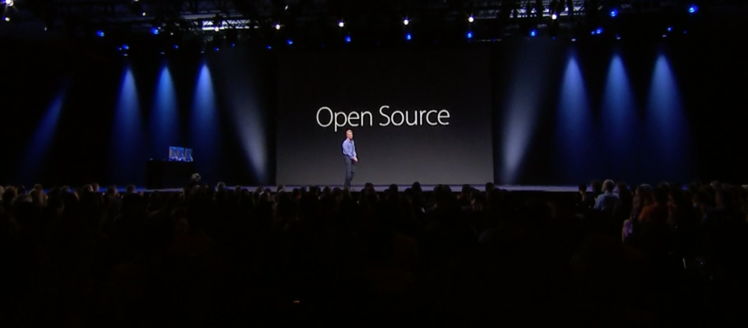Apple is taking a big step to make its Swift programming language more and more pervasive. The language’s compiler and libraries for iOS, OS X, and Linux will become available under an open-source license by the end of the year, Craig Federighi, Apple’s senior vice president of software engineering, said today at Apple’s 2015 Worldwide Developers Conference (WWDC) in San Francisco.
Apple first unveiled Swift for writing Mac and iOS apps at the 2014 WWDC. The language works in Apple’s Xcode integrated development environment and Apple’s Cocoa and Cocoa Touch frameworks.
“We think Swift is the next big programming language, the one that we’ll all be doing application and system programming on for 20 years to come,” Federighi said. “We think Swift should be everywhere and used by everyone.”
Hence today’s big move.
Apple describes Swift as “a successor” to C and Objective-C on its website, with its support for object-oriented programming and whole module optimization.
Sure enough, developers recently showed their love for Swift in a Stack Overflow survey. No other language had a higher percentage of developers who currently use it and want to continue to do so.
Apple has not had a big open-source reputation over the years. Microsoft has done a good bit in the past few years to make more of its development tools available under open-source licenses. The .NET open-source efforts have been notable in particular. Now, with Google pushing Go and Mozilla advocating Rust, Apple is trying to make Swift bigger by hitting the open-source button.
In addition to going open source, Apple is introducing Swift 2. Improvements include error handling, synthesized headers in Apple’s Xcode integrated development environment, and protocol extensions, Federighi told the crowd.
VentureBeat's mission is to be a digital town square for technical decision-makers to gain knowledge about transformative enterprise technology and transact. Learn More

